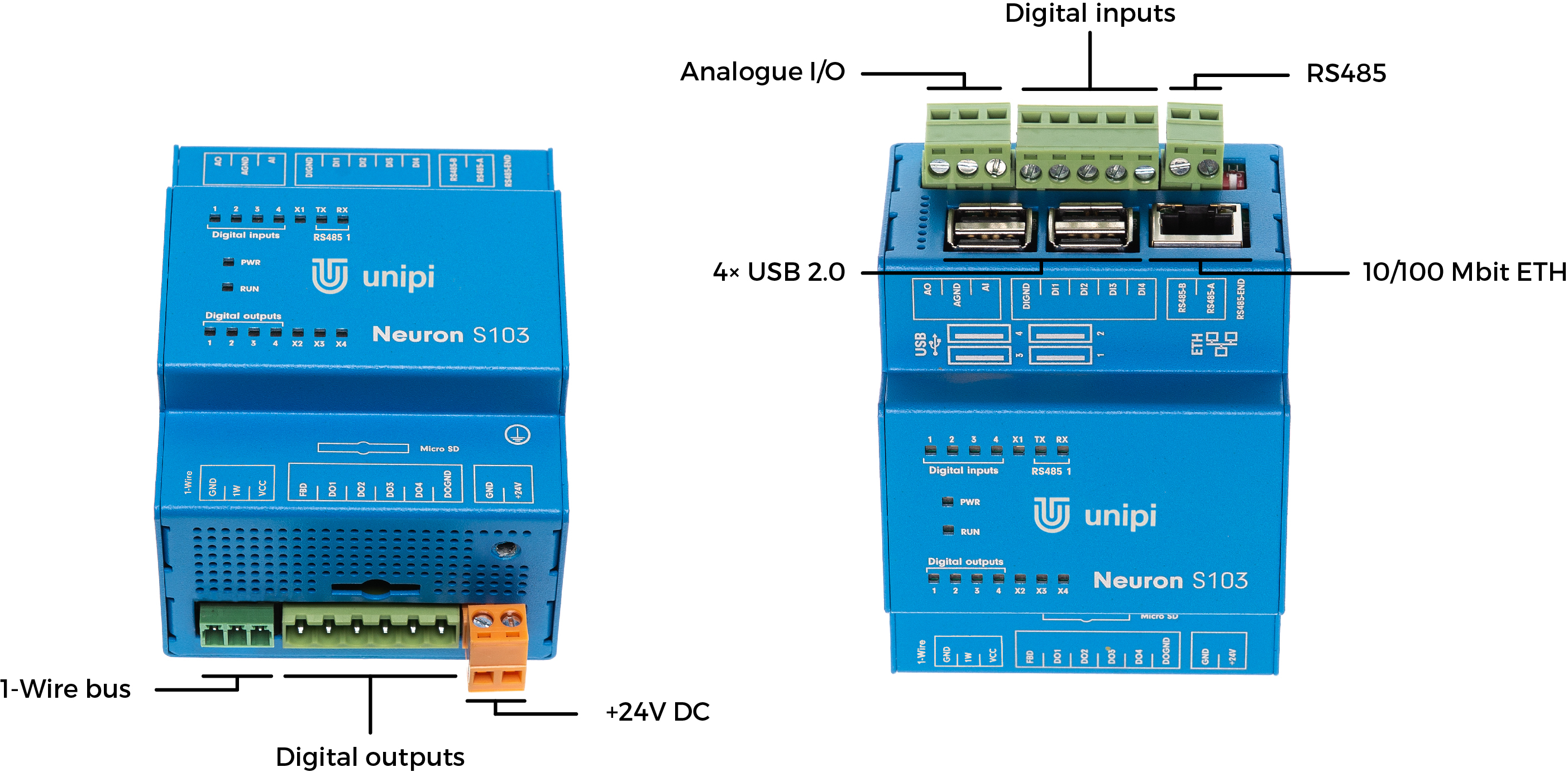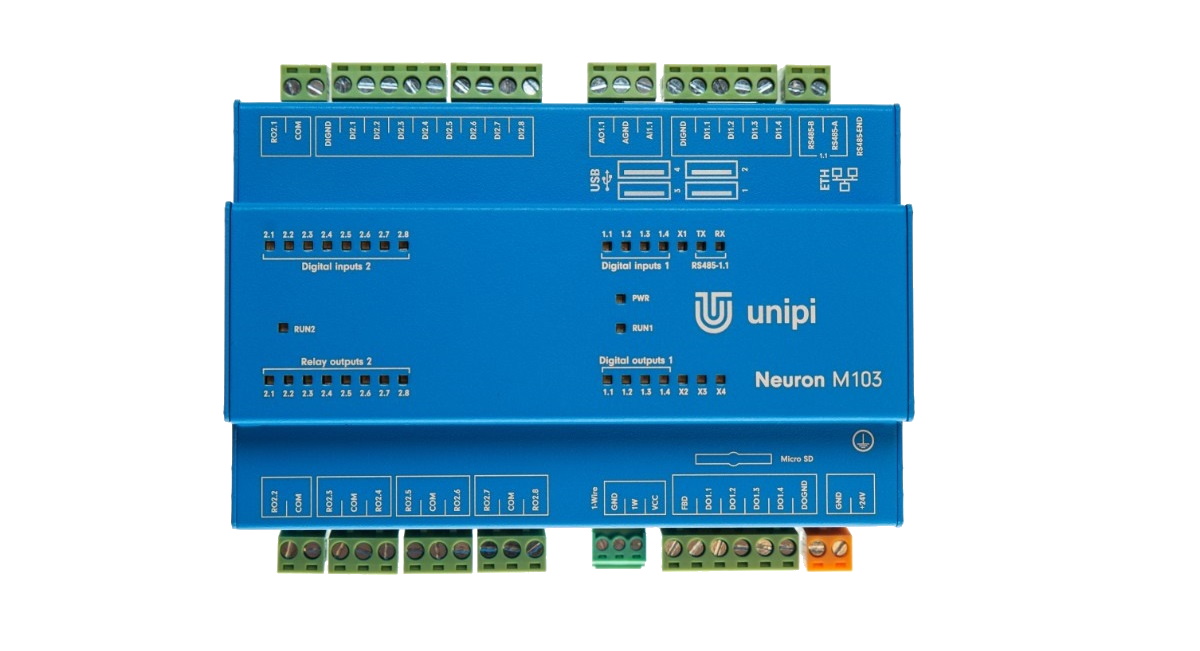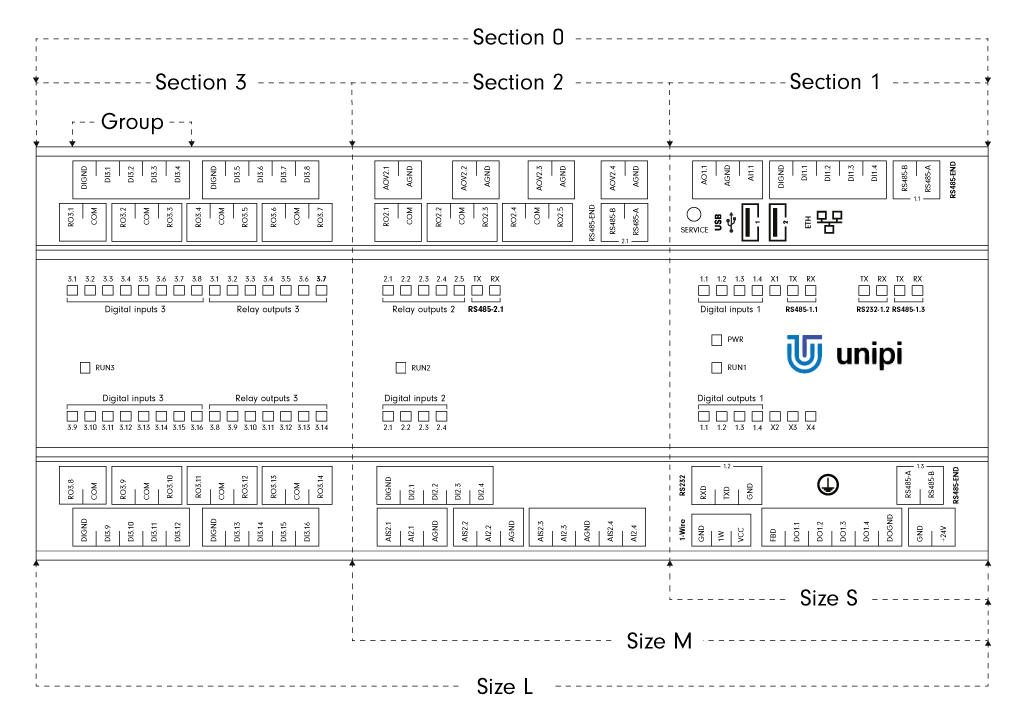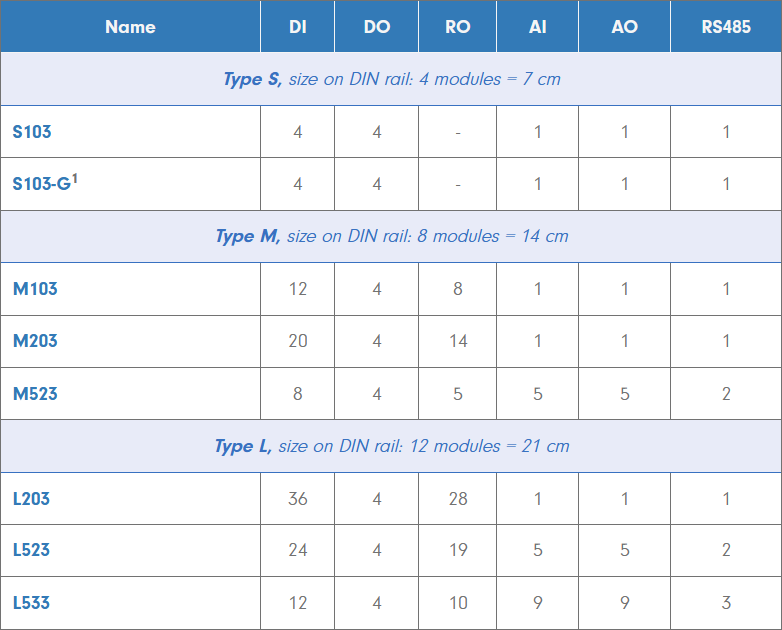Unipi Neuron
Unipi Neuron is a modular programmable logic controller (PLC) product line designed for control, regulation and monitoring of smart building systems, HVAC (Heating, Ventilation, Air Conditioning) systems and both home and industrial automation systems. Thanks to its modular architecture and compact design, the Neuron represents a highly flexible and affordable solution for the quickly expanding field of smart technology. Customers can also utilize the Neuron for smart energy management to achieve better energy efficiency and reduce expenses.
Hardware description
 Depending on the model, Neuron units feature 1-3 sections. See below for more info.
Depending on the model, Neuron units feature 1-3 sections. See below for more info.
Each I/O circuit board is controlled by its STM32 processor, which controls inputs and outputs and communicates with the central processing unit (CPU). Processors are using custom firmware containing not only basic I/O functions but also additional functions and features.
All components are encased in a durable metal case made from anodized aluminium with IP20 degree of protection against external hazards. The case can be customized - for more info, see the OEM solutions page
Computing module (SBC)
The unit is available with a Raspberry Pi 3 Model B+ computing module, or a Raspberry Pi 4 Model B with an optional capacity (2, 4 or 8 GB) of operating memory. This allows you to choose the exact configuration so the controller would meet all your requirements.
The following table compares the technical parameters of both options:
| Comparison of the available computing modules | ||
|---|---|---|
| Type | Raspberry Pi 3 Model B(+) | Raspberry Pi 4 Model B |
| CPU | 4× 1.2 GHz | 4× 1.5 GHz |
| Operating memory | 1 GB | 2 GB / 4 GB / 8GB |
| Ethernet | 10/100 Mbit | 1 Gbit |
| USB | 4× USB 2.0 | 2× USB 2.0, 2× USB 3.0 |
| HDMI | 1× HDMI | 2× micro-HDMI |
| Wireless communication | Wi-Fi, Bluetooth 4.1 | Wi-Fi , Bluetooth 5.0 |
The exact type of Raspberry Pi computing module can be determined by the FID parameter, which is indicated on the manufacturer label:
- FID 2.x = Raspberry Pi 3 Model B
- FID 3.x = Raspberry Pi 3 Model B+
- FID 4.2 = Raspberry Pi 4 Model B (2GB RAM)
- FID 4.4 = Raspberry Pi 4 Model B (4GB RAM)
- FID 4.8 = Raspberry Pi 4 Model B (8GB RAM)
Inputs & Outputs
Depending on the model, the Neuron product line can offer up to:
- up to 64 digital inputs
- up to 4 digital outputs
- up to 56 relay outputs
- up to 9 analog inputs
- up to 9 analog outputs
- up to 3 RS485 universal bus ports
- various combinations of the above-mentioned
For more details, please visit the description of Axon inputs and outputs available on this link.
HDMI port on Unipi Neuron units is intentionally sealed, as using the graphic chip can cause system instability (issues with the used software or overheating). Some HDMI displays can damage the unit just by connecting to it (eg. due to the ground potential difference). Removing the HDMI seal renders the unit's warranty null and void.
As a solution, you can use external displays:
- HMI → Weintek
- Web interface → smartphone/tablet, PC, atd..
Communication interfaces
By default, all Neuron models feature up to three RS485 serial lines for connecting of external devices or extension modules (i.e. Extensions). One line can communicate with up to 32 devices, using the Modbus RTU protocol.
Each Neuron also features a single 1-Wire bus for the passive reading of data from corresponding 1-Wire sensors (humidity sensors, temperature sensors etc.). One bus can receive data from up to 15 sensors at once (provided a suitable 1-Wire hub is used).
As the Unipi Neuron product line is based on the Raspberry Pi, all Neuron units feature up to 4 USB ports. These ports can be used for connecting various USB convertors, external memory drives etc. We do not recommend using them to power external devices.


